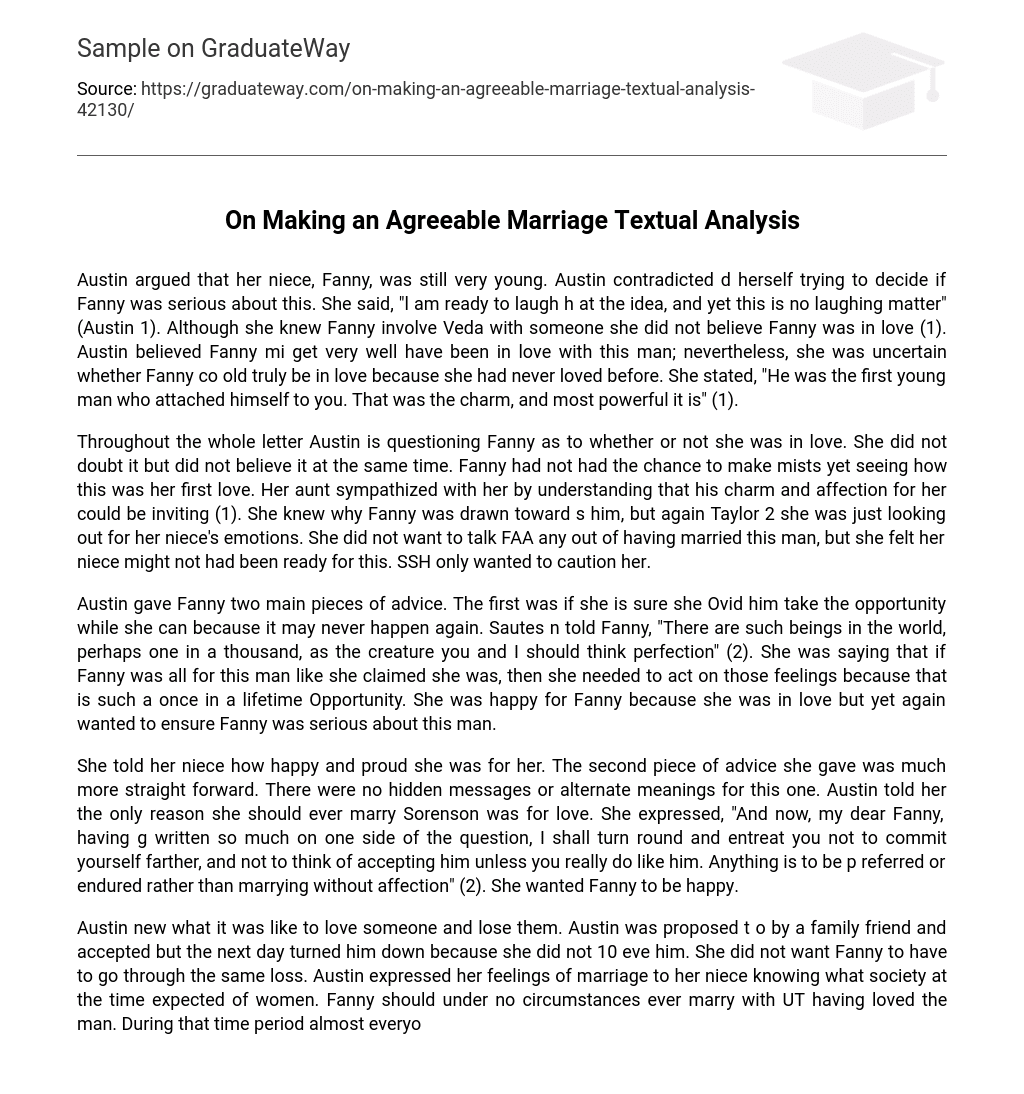Austin argued that her niece, Fanny, was still very young. Austin contradicted d herself trying to decide if Fanny was serious about this. She said, “l am ready to laugh h at the idea, and yet this is no laughing matter” (Austin 1). Although she knew Fanny involve Veda with someone she did not believe Fanny was in love (1). Austin believed Fanny mi get very well have been in love with this man; nevertheless, she was uncertain whether Fanny co old truly be in love because she had never loved before. She stated, “He was the first young man who attached himself to you. That was the charm, and most powerful it is” (1).
Throughout the whole letter Austin is questioning Fanny as to whether or not she was in love. She did not doubt it but did not believe it at the same time. Fanny had not had the chance to make mists yet seeing how this was her first love. Her aunt sympathized with her by understanding that his charm and affection for her could be inviting (1). She knew why Fanny was drawn toward s him, but again Taylor 2 she was just looking out for her niece’s emotions. She did not want to talk FAA any out of having married this man, but she felt her niece might not had been ready for this. SSH only wanted to caution her.
Austin gave Fanny two main pieces of advice. The first was if she is sure she Ovid him take the opportunity while she can because it may never happen again. Sautes n told Fanny, “There are such beings in the world, perhaps one in a thousand, as the creature you and I should think perfection” (2). She was saying that if Fanny was all for this man like she claimed she was, then she needed to act on those feelings because that is such a once in a lifetime Opportunity. She was happy for Fanny because she was in love but yet again wanted to ensure Fanny was serious about this man.
She told her niece how happy and proud she was for her. The second piece of advice she gave was much more straight forward. There were no hidden messages or alternate meanings for this one. Austin told her the only reason she should ever marry Sorenson was for love. She expressed, “And now, my dear Fanny, having g written so much on one side of the question, I shall turn round and entreat you not to commit yourself farther, and not to think of accepting him unless you really do like him. Anything is to be p referred or endured rather than marrying without affection” (2). She wanted Fanny to be happy.
Austin new what it was like to love someone and lose them. Austin was proposed t o by a family friend and accepted but the next day turned him down because she did not 10 eve him. She did not want Fanny to have to go through the same loss. Austin expressed her feelings of marriage to her niece knowing what society at the time expected of women. Fanny should under no circumstances ever marry with UT having loved the man. During that time period almost everyone was getting married for every reason but love, for Taylor 3 example money. In this letter to Fanny she shows it is okay to question society y and Styrofoam the norm.





